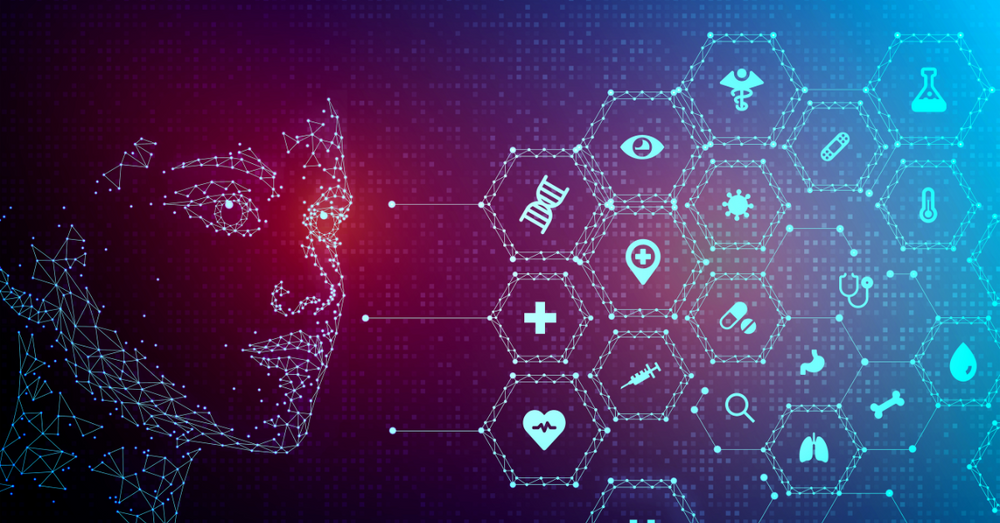ChatGPT and the role of artificial intelligence in the future of medicine

ChatGPT, a language model developed by OpenAI, has the potential to revolutionise the way doctors and medical professionals work.
Without cracking a single textbook or spending a day in medical school ChatGPT correctly answered enough practice questions that it would have passed the real US Medical Licensing Examination (CNN, 2023)
With its advanced natural language processing capabilities, ChatGPT can support doctors in a variety of ways, from answering routine questions to even helping with complex medical diagnoses. This article will explore how ChatGPT can support doctors and the medical industry.
Providing medical information (fast!)
ChatGPT can serve as a powerful tool for providing medical information to doctors and other healthcare professionals. With its vast database of medical knowledge, ChatGPT can quickly and accurately answer questions about symptoms, medications, and treatment options. This can be especially helpful for doctors who are working in rural or underserved areas, where access to medical information may be limited. It also provides a quicker option than trawling Google.
Enhancing medical research
ChatGPT can also support medical research by helping doctors and researchers sift through large amounts of medical data. By processing large amounts of medical literature, ChatGPT can identify patterns and trends that might not be immediately apparent to humans. This can help researchers identify new treatment options and improve patient outcomes.
Assisting with diagnoses
One of the most exciting applications of ChatGPT in the medical industry is its potential to assist with medical diagnoses. By analysing a patient's symptoms and medical history, ChatGPT can provide doctors with a list of possible diagnoses, along with the probability of each one. This can help doctors make more accurate diagnoses and provide better treatment options.
Improving patient engagement
ChatGPT can also improve patient engagement by providing patients with personalised health information and answering their questions in real time. This can help patients better understand their conditions and treatment options, leading to better outcomes and increased patient satisfaction.
Looking for a doctor job that matches your career and lifestyle aspirations?
Search jobsReducing administrative burden
ChatGPT can help reduce the administrative burden on doctors and healthcare professionals. By automating routine tasks such as appointment scheduling and prescription refills, ChatGPT can free up doctors' time and allow them to focus on providing quality patient care.
This being said ChatGPT is still in its early stages and its issues with accuracy have been well-documented since its inception. OpenAI admits that the chatbot has “limited knowledge of world events after 2021,” and is prone to filling in replies with incorrect data if there is not enough information available on a subject. Where medicine is concerned there are many great ways ChatGPT can save doctors time, but it is integral to have its work checked by a human (especially where diagnosis or treatment is concerned)!
Neuro Science News contends: "While there is clear potential to use ChatGPT in a clinical setting, researchers say the AI algorithm may not yet be a reliable way of replacing the family doctor, especially when it comes to making effective decisions about prescribing antibiotics for infections."
Artificial intelligence is already being utilised in other areas of medicine. Clearhead, founded by Dr Angela Lim uses artificial intelligence to make personalised mental health and wellbeing support available to everyone.
“I felt like some of the boring repetitive stuff could be automated and therefore actually empower the individual to make better decisions in the community," Dr Lim explained in an interview with Medworld.
The future of ChatGPT in medicine
The integration of artificial intelligence (AI) in medicine has led to transformative advancements in patient care and medical education. ChatGPT, an AI-powered large language model, has emerged as a valuable tool in medical practice and learning. Its capabilities for generating text and understanding natural language have proven beneficial in various applications, such as clinical notes, medical student education, and clinical decision support.
ChatGPT's generative abilities enable the efficient creation of clinical notes, streamlining the documentation process and allowing healthcare professionals to focus on patient interaction. By automating note-taking, ChatGPT helps reduce the time spent on administrative tasks, ensuring that doctors can dedicate more attention to providing personalised care.
For medical students, ChatGPT serves as an interactive educational resource. By simulating patient scenarios and offering guidance on clinical decisions, it helps students prepare for medical licensing exams, such as the USMLE (United States Medical Licensing Exam). The AI-driven platform can generate realistic case studies and questions that mimic the format of the USMLE, reinforcing students' understanding and enhancing their performance on the exam.
The machine learning capabilities of ChatGPT enable it to continuously improve, becoming more effective and accurate in its generated responses. This feature is particularly valuable in clinical decision support, where accurate and timely information is crucial. By harnessing the power of artificial intelligence, ChatGPT can assist healthcare professionals in diagnosing, treating, and managing patient conditions more effectively.
In conclusion, ChatGPT has the potential to revolutionise the way doctors and healthcare professionals work. By providing medical information, enhancing medical research, assisting with diagnoses, improving patient engagement, and reducing administrative burdens, ChatGPT can help doctors provide better patient care and improve patient outcomes. As ChatGPT continues to develop and enhance, its applications in the medical industry will become even more widespread and impactful.
